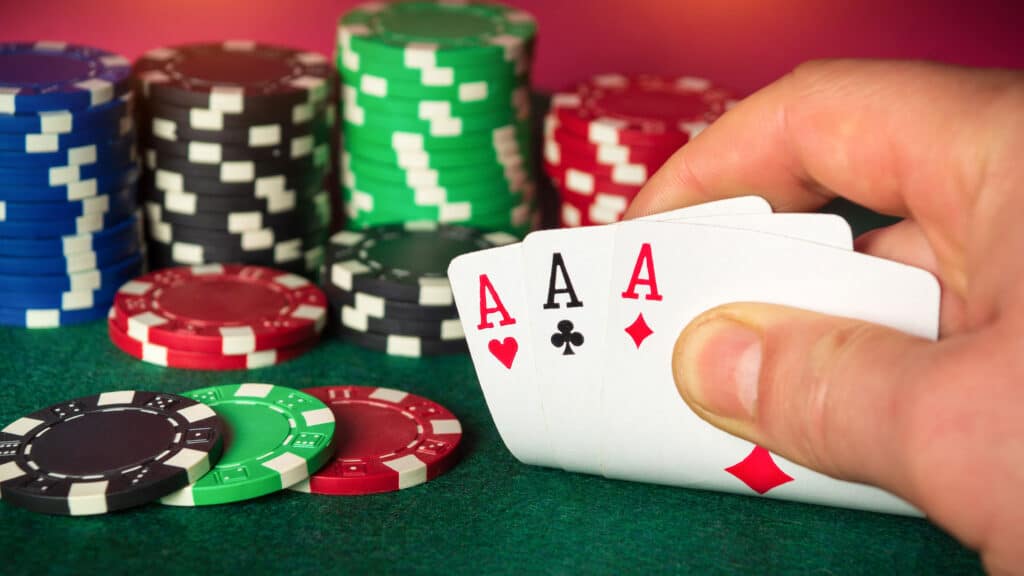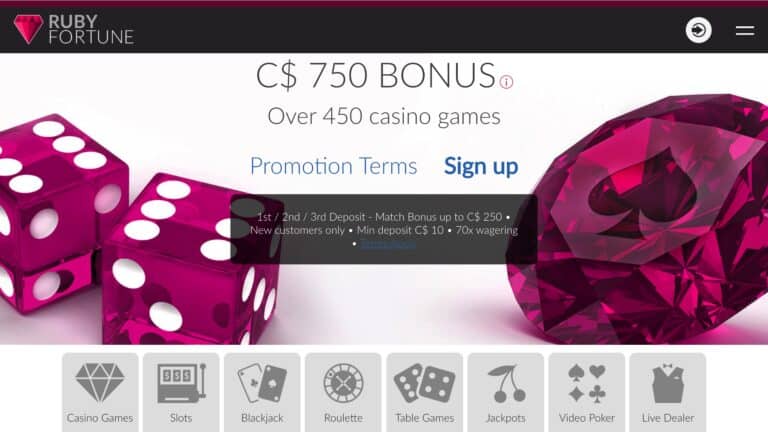Understanding the house edge in online casino games is crucial for anyone looking to engage with online gambling responsibly and strategically, as this statistical advantage built into every game represents the casino's expected profit over time and directly influences a player's chances of winning or losing.
The Concept of House Edge Explained
The house edge is the mathematical advantage that a casino holds over players in any given game, expressed as a percentage of the player's stake. It’s not a guarantee of profit on every single bet for the casino, but rather an assurance of profitability over a large number of bets. Essentially, for every dollar a player bets, the house edge dictates how much, on average, the casino expects to keep in the long run. This edge is inherent in the game's design and rules, ensuring the casino's sustainability and profitability.
For example, a game with a 5% house edge implies that for every $100 wagered by players, the casino anticipates earning $5 in profit over time. Conversely, this also means that players, on average, can expect to retain $95 of their wager for every $100 bet in the long term. It's important to understand that this is a statistical average calculated over thousands, or even millions, of rounds, not a reflection of short-term outcomes. In the short run, anything can happen – players can win or lose significantly, but over time, the house edge will assert itself.
The house edge is distinct from variance or volatility, which describes the fluctuations in game outcomes. A game can have a low house edge but high volatility, meaning wins might be less frequent but potentially larger when they occur. Conversely, a game with low volatility and a higher house edge might offer more frequent, smaller wins but a quicker depletion of your bankroll over time. Understanding both house edge and variance is key to choosing games that align with your risk tolerance and gambling objectives.
Why House Edge Matters to Gamblers
For gamblers, understanding the house edge is paramount because it directly impacts their odds of winning and the potential lifespan of their bankroll. Ignoring the house edge is akin to navigating a financial market without understanding basic investment risks and returns. It allows players to make informed decisions about which games to play, how to manage their bankroll, and to set realistic expectations about their gambling sessions.
Knowing the house edge helps players compare different games and identify those that offer better odds. For instance, games like Blackjack, particularly when played with optimal strategy, often have a significantly lower house edge compared to slot machines. This doesn't guarantee wins in Blackjack, but it does mean that, statistically, your money is likely to last longer, and you have a better chance of experiencing winning sessions compared to games with a higher house edge. For experienced gamblers, this knowledge is crucial for strategic game selection and maximizing their playing time and potential returns.
Furthermore, understanding house edge promotes responsible gambling. It helps to dispel the myth of guaranteed wins and reinforces the reality that casino games are designed to favor the house in the long run. This awareness can prevent chasing losses, encourage setting limits, and foster a more rational approach to gambling as a form of entertainment rather than a get-rich-quick scheme. By acknowledging the inherent disadvantage, players can approach online casinos with a clearer perspective and manage their gambling habits more effectively.
House Edge in Popular Online Casino Games
The house edge varies significantly across different types of online casino games. Here’s a breakdown of some popular categories and examples:
Online Slots
Online slots generally have the highest house edge among casino games, often ranging from 2% to 15% or even higher. The house edge in slots is determined by the game's Return to Player (RTP) percentage. RTP is the theoretical percentage of wagered money that a slot machine will return to players over time. For example, a slot with a 95% RTP has a house edge of 5% (100% - 95% = 5%).
Slot RTPs can vary widely. Some slots might advertise RTPs as high as 99% (house edge of 1%), while others can be as low as 85% (house edge of 15%). Progressive jackpot slots often have lower RTPs because a portion of each bet contributes to the jackpot, increasing the house edge on the base game. It's crucial for slot players to check the RTP of a game before playing, which is usually found in the game's information or paytable section. Choosing slots with higher RTPs can significantly improve your odds of prolonging your gameplay and potentially seeing better returns over time.
Blackjack
Blackjack is renowned for having one of the lowest house edges in the casino, often ranging from below 1% to around 2%, and sometimes even becoming favorable to the player under certain conditions and with optimal strategy. However, the house edge in Blackjack is highly dependent on player skill and the specific rules of the game variant. Optimal strategy involves learning and consistently applying the mathematically correct decisions for hitting, standing, doubling down, and splitting pairs based on your hand and the dealer's visible card.
Variations in Blackjack rules can significantly impact the house edge. Rules such as dealer hitting on soft 17 (S17 vs. H17), the number of decks used, and rules around doubling down and splitting all affect the casino's advantage. For example, a game where the dealer stands on soft 17 (S17) generally has a lower house edge than one where the dealer hits on soft 17 (H17). Similarly, single-deck Blackjack typically offers better odds than multi-deck versions, although single-deck games are becoming increasingly rare in online casinos. To minimize the house edge in Blackjack, players should not only learn basic strategy but also seek out game variants with player-friendly rules.
Roulette
Roulette house edge varies significantly depending on the roulette variation played: European or American. European Roulette, with its single zero pocket, has a house edge of approximately 2.7%. This is derived from the 37 pockets (numbers 1-36 and a single zero), meaning that for a single number bet paying 35 to 1, the true odds are 37 to 1 against winning, creating the 2.7% edge.
American Roulette, which includes both a single zero and a double zero pocket, significantly increases the house edge to approximately 5.26%. The addition of the double zero increases the number of pockets to 38, while payouts remain the same as in European Roulette, thus doubling the house advantage on most bets. Due to this significantly higher house edge, European Roulette is generally recommended for players looking for better odds. French Roulette, another variation, can even offer a slightly lower house edge than European Roulette due to rules like 'La Partage' and 'En Prison', which return half of even-money bets when the ball lands on zero, further reducing player losses on these bets.
Baccarat
Baccarat is often perceived as a game of chance, but it features different house edges depending on the bet type. Betting on the 'Banker' hand in Baccarat has a house edge of just around 1.06%, making it one of the most player-friendly bets in a casino. The 'Player' hand bet comes with a house edge of approximately 1.24%, still relatively low compared to many other casino games. However, betting on a 'Tie' in Baccarat carries a significantly higher house edge, often exceeding 14% on standard payouts (and sometimes around 4% with adjusted payouts), making it a bet to generally avoid despite its tempting higher payout odds.
The lower house edge on Banker and Player bets in Baccarat stems from the game's rules, which slightly favor the Banker hand and often involve a commission (typically 5%) on Banker wins to maintain the house advantage. Despite the commission, betting on the Banker remains statistically the most advantageous option in Baccarat due to the inherent probabilities built into the game's dealing rules. Understanding these nuances of Baccarat betting is essential for players aiming to optimize their gameplay and minimize losses.
Video Poker
Video Poker is unique because, in some variations, it can offer a house edge of less than 0.5%, and in rare instances, even offer a slight player advantage when optimal strategy is employed. The house edge in Video Poker is highly variable and depends on the specific game variation (e.g., Jacks or Better, Deuces Wild, Bonus Poker) and the pay table offered for different hands. Unlike slots, Video Poker involves skill, as players make decisions on which cards to hold and discard, directly influencing the outcome.
Games like 'Full Pay Deuces Wild' or '9/6 Jacks or Better' are known for their exceptionally low house edges when played with perfect strategy. Achieving this low house edge requires players to learn and apply optimal strategies, often involving memorizing strategy charts for each game variation. Incorrect play in Video Poker can significantly increase the house edge, eroding any potential advantage. Therefore, while Video Poker can be potentially advantageous, it demands skill, strategy, and careful game selection to realize its low house edge potential.
Live Casino Games
Live casino games, which include live Blackjack, live Roulette, live Baccarat, and game shows, generally mirror the house edges of their standard online and land-based casino counterparts. Live dealer Blackjack, for example, will typically have a similar house edge to online Blackjack, dependent on the rules and player strategy. Live Roulette will follow the European or American Roulette house edge based on the wheel variation used. Live Baccarat will maintain the same house edges for Banker, Player, and Tie bets as in the standard online version.
Game shows in live casinos, however, can have a wider range of house edges, often leaning towards the higher end, similar to slots. Games like Dream Catcher or Monopoly Live, while entertaining, might have house edges ranging from 3% to over 10%, depending on the specific segments and bonus features. Players engaging with live casino games should be aware that while the format is more immersive, the underlying house edge principles remain consistent with their non-live versions, and game shows might carry a higher cost of play in terms of house advantage.
Factors Influencing House Edge
Several factors can influence the house edge in online casino games, some are inherent to the game, while others are related to player choices and casino policies.
Game Rules and Variations
As illustrated with Roulette (European vs. American) and Blackjack (rules variations), the specific rules of a game and its variations are primary determinants of the house edge. Even subtle rule changes can significantly shift the odds. For example, in Blackjack, rules like 'Blackjack payout' (3:2 vs. 6:5), 'Surrender' options, and restrictions on 'Splitting Aces' all affect the house edge. Players should always familiarize themselves with the specific rule set of a game variant before playing, as these rules directly dictate the statistical advantage the casino holds.
Player Skill and Strategy
In games like Blackjack and Video Poker, player skill and strategy play a crucial role in minimizing the house edge. Optimal strategy in Blackjack can reduce the house edge to below 1%, while deviations from this strategy increase it. Similarly, in Video Poker, choosing the right cards to hold and discard based on the pay table is essential for achieving the lowest possible house edge. Games that involve strategic decision-making offer players a degree of control over their odds, contrasting with purely luck-based games like slots where player input has no impact on the house edge.
Casino Policies and RTP Settings
Online casinos have some degree of control over the house edge, particularly in games like slots, where they can choose from a range of RTP settings provided by game developers. Different casinos might offer the same slot game with slightly different RTP percentages, impacting the house edge. Responsible and transparent casinos will often publish the RTP of their slot games, allowing players to make informed choices. However, this information isn't always readily available, and players might need to check game information or external databases to find the RTP of a specific slot at a particular casino. Casino promotions and bonuses, while appearing beneficial, are also factored into the overall house edge calculation for the casino, ensuring long-term profitability even with these incentives.
Psychological Aspects of House Edge
The house edge not only has a mathematical impact but also psychological implications for gamblers. The awareness, or lack thereof, of the house edge can significantly influence a player's gambling behavior, expectations, and emotional responses to wins and losses.
Perception of Fairness and Control
Many gamblers, especially new players, might not fully grasp the concept of house edge, potentially perceiving casino games as fairer or more skill-based than they are. The allure of winning and the occasional big payout can overshadow the underlying statistical disadvantage. This misperception can lead to overconfidence, the belief in streaks or 'hot hands', and ultimately, to riskier betting behaviors. Understanding the house edge helps to ground expectations in reality, fostering a more rational view of casino games as entertainment with a built-in cost, rather than opportunities for guaranteed profit.
Emotional Response to Wins and Losses
The house edge, combined with the inherent variance in gambling outcomes, can create a rollercoaster of emotions. Short-term wins can be exhilarating, reinforcing the gambler's fallacy that continued play will lead to more wins, despite the house edge working against them. Conversely, losses can be frustrating, potentially leading to chasing losses in an attempt to recoup money quickly, further exacerbating the impact of the house edge. Awareness of the house edge can help players manage their emotional responses, accept losses as a statistical probability rather than personal failures, and celebrate wins as fortunate, albeit statistically less likely, outcomes.
Responsible Gambling and House Edge Awareness
Promoting awareness of the house edge is a crucial component of responsible gambling education. When gamblers understand that they are playing games designed with a statistical disadvantage, it encourages a more cautious and controlled approach to gambling. This understanding can empower players to set realistic limits on their spending and playing time, to choose games with lower house edges if they wish to prolong their gameplay, and to view gambling as a form of entertainment with an inherent cost, rather than a source of income or a solution to financial problems. Responsible gambling initiatives often emphasize education about house edge as a fundamental aspect of informed player decision-making.
Strategies to Minimize House Edge (Where Possible)
While the house edge is inherent in casino games, players can adopt certain strategies to minimize its impact or choose games where the edge is naturally lower.
Game Selection
The most effective strategy to minimize house edge is to choose games with inherently lower edges. Prioritizing games like Blackjack (using optimal strategy), European Roulette, Baccarat (betting on Banker or Player), and certain Video Poker variations over high-house-edge games like slots or Keno significantly improves your odds over time. Understanding the typical house edge ranges for different game categories allows players to make informed choices about where to allocate their gambling funds.
Learning and Applying Optimal Strategies
In games like Blackjack and Video Poker, employing optimal strategies is crucial for reducing the house edge to its minimum possible level. This involves learning basic strategy charts for Blackjack and understanding the optimal card holding strategies for different Video Poker variations. While mastering these strategies requires effort and practice, it directly translates to better odds and potentially longer playing sessions compared to playing these games based on intuition or guesswork. Resources for learning optimal strategies, like online strategy calculators and guides, are widely available.
Bankroll Management
Effective bankroll management, while not directly reducing the house edge itself, is vital for mitigating its long-term impact. Setting clear limits on how much you are willing to spend and lose, and sticking to those limits, ensures that the house edge doesn't lead to unsustainable financial losses. Proper bankroll management involves betting amounts that are a small percentage of your total bankroll, allowing for longer playtime and weathering the inevitable swings of variance. It's a defensive strategy to manage risk and ensure gambling remains a form of entertainment within affordable limits.
Conclusion: Playing Smart with House Edge in Mind
The house edge is an unavoidable reality of online casino games, a fundamental aspect of how casinos operate and ensure their profitability. For gamblers, understanding the house edge is not about finding ways to 'beat' the casino in the long run – as that's statistically improbable – but about making informed choices to enhance their playing experience, manage their bankroll effectively, and gamble responsibly. By choosing games with lower house edges, employing optimal strategies where applicable, and being mindful of bankroll management, players can make the most of their entertainment budget and approach online casinos with realistic expectations.
Ultimately, the key takeaway is that house edge awareness empowers players. It transforms gambling from a game of blind chance into a more informed and strategic pastime. Recognizing the house edge is the first step towards responsible and enjoyable online gambling, where entertainment and informed decision-making go hand in hand.
External Resources:



